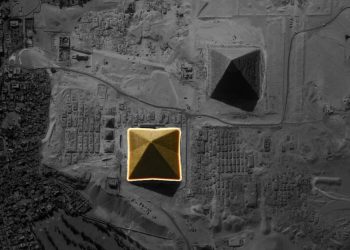In the relentless pursuit of cosmic understanding, the discoveries of exoplanets have ignited our collective imagination, leaving us awestruck by the marvels of the universe. Recent years have borne witness to an extraordinary influx of knowledge, unraveling the mysteries that surround these celestial nomads and their profound implications for the future of humanity. As we embark on this cosmic journey, I invite you to delve into the boundless realms of exoplanets.
Here are my thoughts!
A Journey to the Stars
It was on that momentous day of April 18, 2018, at precisely 6:51 p.m., that a Falcon 9 rocket soared into the heavens, embarking on a mission of unparalleled significance. Its objective? To deploy NASA’s Transiting Exoplanet Survey Satellite (TESS), a sentinel of the cosmos. TESS, often referred to as the cosmic cartographer, initiated its celestial odyssey, casting its watchful gaze upon the celestial tapestry. In its quest, it undertook the monumental task of scrutinizing the nearest 100 light-years, peering into the intricate dance of planets orbiting the distant luminous stars.
The Exoplanet Renaissance
In our epoch, we stand witness to what I like to call the exoplanet renaissance—a transformative era characterized by the relentless pursuit of discovery. A mere two decades ago, the very existence of Earth-like planets inhabiting the realms of distant stars remained an enigma cloaked in cosmic obscurity. Today, we find ourselves immersed in an exoplanet golden age, where the fervor of our scientific inquiries exceeds our capacity to fathom the magnitude of our revelations. To date, more than 5,500 exoplanets have been discovered, and thousands more are awaiting confirmation.
A Heretical Notion Shattered
Centuries ago, the audacious belief in “an infinity of worlds” and the audacious proposition that extraterrestrial life might grace these celestial realms was considered heresy. The indomitable Italian philosopher Giordano Bruno paid the ultimate price for his convictions, facing the unforgiving flames of persecution. His transgression? Daring to challenge the prevailing orthodoxy of his time, envisioning a universe teeming with otherworldly life forms. The cosmos, once perceived as an exclusive dominion of Earth, was about to shatter the age-old dogmas.
The unveiling of exoplanets unfolded as a result of monumental achievements in space exploration, epitomized by the pioneering missions of Kepler and TESS. Launched in 2009, Kepler forever altered the course of our cosmic perception. Its successor, TESS, harnessed the transit method—an ingenious approach to detecting exoplanets. By astutely observing the subtle dimming of starlight as these enigmatic orbs journeyed across their radiant hosts, TESS heralded a new era of celestial discovery revealing mre worlds in space than we could ever dream of.
The Cosmic Census Unveiled
Our Milky Way galaxy, an expansive tapestry of cosmic wonders, boasts an awe-inspiring ensemble of approximately 400 billion stars. Remarkably, the emerging astronomical consensus suggests that virtually every one of these stellar luminaries plays host to at least one planetary companion—a revelation that reshapes our very understanding of celestial companionship.
In the quest for extraterrestrial life, astronomers set their sights on the Goldilocks zone—a cosmic realm where nature delicately balances the scales for life to flourish. This ethereal territory, where conditions favor the existence of liquid water, beckons as a potential cradle for life beyond Earth. It is within this celestial boundary that the dream of discovering extraterrestrial life takes root, offering a tantalizing glimpse into the cosmic theater.
While some tread cautiously, others dare to entertain the notion of advanced life forms inhabiting distant exoplanets. The expansive canvas of cosmic time allows for contemplation of civilizations that may have risen and fallen before the birth of our own world. This opens the door to profound questions about the evolution of intelligence among the stars.
Extraterrestrial Visitation: A Bold Hypothesis
Beyond the boundaries of conventional scientific thought lies the audacious hypothesis that Earth may have been a destination for ancient extraterrestrial visitors. Alternative theories propose the existence of technologically advanced civilizations traversing the cosmic expanse to reach our planet, leaving behind cryptic traces of their enigmatic sojourn. This unconventional perspective challenges the limits of our understanding.
The exploration of exoplanets emerges as a testament to humanity’s insatiable curiosity and unyielding ingenuity. In our relentless quest, we venture beyond the confines of our solar abode, venturing into realms that defy our fundamental notions of existence. The cosmos, once a silent expanse, now beckons with the promise of ancient civilizations and life beyond the terrestrial realm. As we continue this cosmic odyssey, we find ourselves perched on the precipice of profound discoveries that hold the potential to reshape our perspective on the universe in ways we can scarcely imagine.
Join the Conversation!
Have something to share or discuss? Connect with us on Facebook and join like-minded explorers in our Telegram group. For the latest discoveries and insights, make sure to follow us on Google News.











